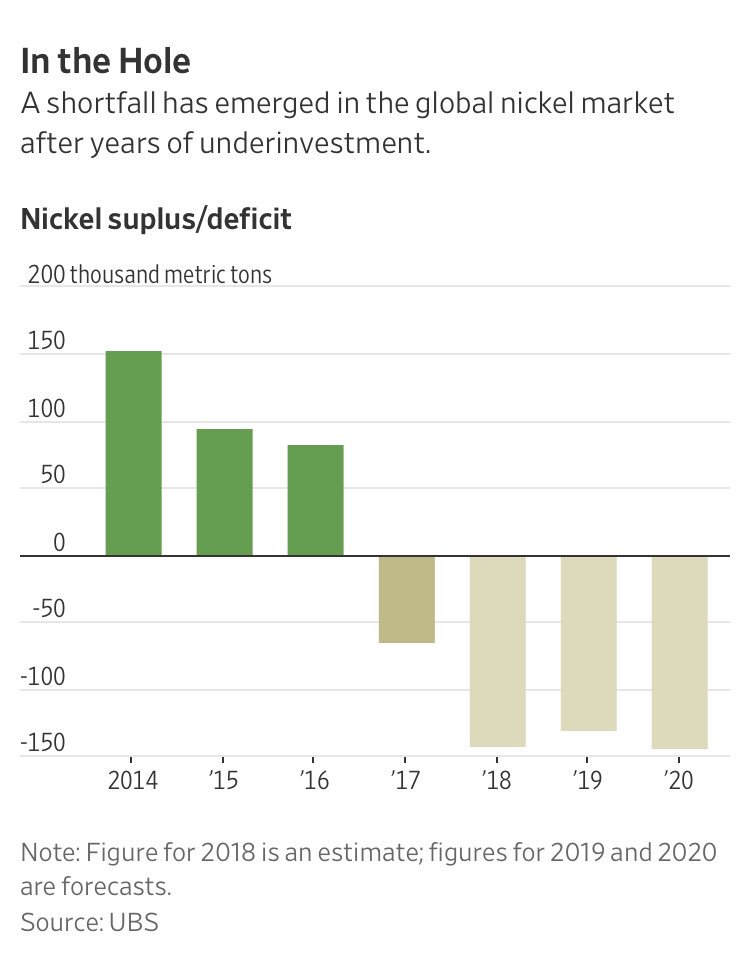Meta's Future Under The Trump Administration: Zuckerberg's Response

Table of Contents
Political Advertising and Election Interference
The controversies surrounding political advertising on Meta's platforms during the 2016 and 2020 elections cast a long shadow. These controversies highlight the critical need for robust content moderation policies and transparency in political ad spending.
Scrutiny of Political Ads
- Foreign interference: The use of Meta's platforms by foreign actors to interfere in the US elections became a major point of contention. Russian interference in the 2016 election, in particular, sparked intense scrutiny.
- Misinformation campaigns: The spread of misinformation and disinformation through political advertising on Facebook and Instagram raised serious concerns about the integrity of the democratic process.
- Lack of transparency in ad spending: The lack of transparency surrounding the sources of political advertising funding fueled criticism and calls for greater regulation.
Zuckerberg's public statements and Meta's subsequent policy changes regarding political advertising attempted to address these concerns. However, the effectiveness of these measures remains a subject of ongoing debate. The implementation of stricter ad verification processes and increased transparency requirements represent significant steps, but challenges persist.
Content Moderation Challenges
Meta faced immense difficulties in moderating content related to the Trump administration and its supporters. This highlighted the inherent tension between protecting free speech and combating misinformation and hate speech.
- Balancing free speech with combating misinformation and hate speech: This is arguably the most significant challenge faced by Meta and other social media platforms. The line between protected speech and harmful content is often blurry, making content moderation decisions incredibly complex.
- Censorship accusations: Decisions to remove or restrict certain content, particularly from politically influential figures, often led to accusations of censorship and bias.
- Algorithm bias: Concerns arose about potential biases within Meta's algorithms that might disproportionately affect certain viewpoints or political groups.
These challenges significantly impacted user trust and Meta's brand reputation, leading to continued pressure for greater accountability and transparency in content moderation practices.
Data Privacy and Antitrust Concerns
The Trump administration's focus on data privacy and antitrust issues significantly impacted Meta.
Cambridge Analytica Scandal and its Aftermath
The Cambridge Analytica scandal, where user data was improperly harvested and used for political advertising, severely damaged public trust in Meta.
- Data breaches: The scandal highlighted the vulnerabilities in Meta's data security practices and the potential for misuse of user information.
- User consent issues: Questions were raised about the transparency and validity of user consent for data collection and usage.
- Regulatory fines and investigations: The scandal resulted in substantial regulatory fines and investigations in multiple countries.
Zuckerberg's testimony before Congress and the subsequent changes in Meta's data privacy policies aimed to mitigate these issues. However, the lingering effects of the scandal continue to shape the public's perception of the company.
Antitrust Scrutiny and Potential Breakup
Meta faced intense antitrust scrutiny throughout the Trump administration's tenure.
- Monopolization concerns: Concerns about Meta's dominant market position in social networking and its potential anti-competitive practices fueled investigations and lawsuits.
- Accusations of anti-competitive practices: Accusations included the acquisition of Instagram and WhatsApp to stifle competition.
- Potential forced divestiture of Instagram and WhatsApp: There were calls for Meta to divest itself of these acquisitions, significantly impacting its business model.
The Trump administration's approach to antitrust enforcement, while unpredictable, contributed to the legal uncertainty faced by Meta. The outcome of these lawsuits has significant implications for the company's structure and future growth.
Zuckerberg's Response Strategies
Zuckerberg's response to the challenges involved a combination of public relations, lobbying efforts, and internal policy changes.
Public Relations and Lobbying Efforts
Meta invested heavily in lobbying efforts and public relations strategies to influence policy decisions.
- Engagement with government officials: Meta engaged extensively with government officials at all levels, attempting to shape policy discussions.
- Campaign contributions: Meta's political contributions were also scrutinized, raising questions about its influence on political decision-making.
- Public statements by Zuckerberg: Zuckerberg's public appearances and statements attempted to address public concerns and defend Meta's actions.
The effectiveness of these strategies in shaping the narrative around Meta and its relationship with the Trump administration remains a complex subject.
Policy Changes and Technological Solutions
In response to criticism, Meta implemented several policy changes and invested in technological solutions.
- New content moderation policies: Meta implemented new content moderation policies aimed at improving the detection and removal of harmful content.
- Enhanced data privacy measures: Changes were made to improve data security and enhance user control over their data.
- Investment in AI-based solutions: Meta invested heavily in artificial intelligence to automate and improve its content moderation and data privacy efforts.
These changes represent significant steps, but the effectiveness and long-term impact on Meta's operations and its ability to navigate future political landscapes require ongoing assessment.
Conclusion
Meta's relationship with the Trump administration presented significant challenges, forcing Zuckerberg to navigate complex issues related to political advertising, data privacy, content moderation, and antitrust. His responses, a mix of policy changes, public relations, and technological solutions, were met with varying degrees of success. The ongoing implications for data privacy, content moderation, and antitrust concerns continue to shape the future of not only Meta but the broader social media landscape.
The future of Meta remains inextricably linked to the political climate and regulatory environment. Understanding the complexities of Meta's relationship with past administrations, especially the Trump administration, and analyzing Zuckerberg's strategies provides crucial insight into the ongoing debates surrounding the power and responsibility of tech giants. Continued research into Meta's ongoing adaptation to evolving regulatory environments is therefore vital for understanding the future of social media and its impact on society.

Featured Posts
-
 Uk Courts Definition Of Woman Impact On Sex Based Rights And Transgender Issues
Apr 29, 2025
Uk Courts Definition Of Woman Impact On Sex Based Rights And Transgender Issues
Apr 29, 2025 -
 The Dysprosium Shortage A Looming Threat To Electric Vehicle Production
Apr 29, 2025
The Dysprosium Shortage A Looming Threat To Electric Vehicle Production
Apr 29, 2025 -
 Navigate The Private Credit Boom 5 Crucial Dos And Don Ts For Job Seekers
Apr 29, 2025
Navigate The Private Credit Boom 5 Crucial Dos And Don Ts For Job Seekers
Apr 29, 2025 -
 Auto Legendas F1 Motorral Szerelt Porsche Koezuti Verzioja
Apr 29, 2025
Auto Legendas F1 Motorral Szerelt Porsche Koezuti Verzioja
Apr 29, 2025 -
 Adhd And Aging The Role Of Brain Iron In Cognitive Function
Apr 29, 2025
Adhd And Aging The Role Of Brain Iron In Cognitive Function
Apr 29, 2025
